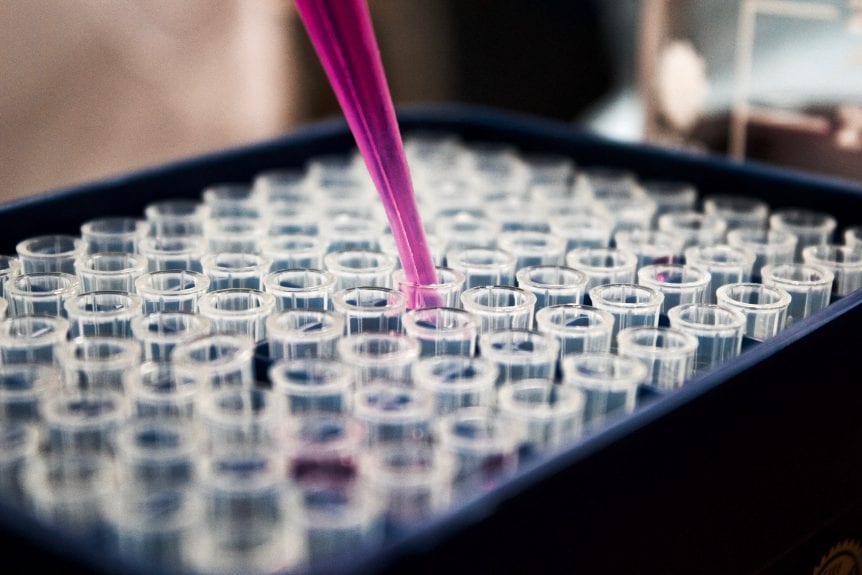Hormone lab tests are standard procedures aimed at determining the health of individuals. Doctors usually request hormone examination based on their medical judgment of an individual’s health.
For example, if your reproductive health is suffering, a testosterone lab test will likely be ordered. Our bodies function through hormones, which are essential to our health. Hormone lab tests are performed by specialists in endocrinology because they are well-versed in the dynamics of the hormones that are produced in our bodies. Hormones are detected in serum, so a blood sample will be taken in order for the hormones to be tested.
Why Are Hormone Lab Tests Done?
Due to the rise of infertility and reproductive health issues, more hormone testing research has recently been performed and effective technology has been established. Such information has been useful in helping millions of people get diagnosed and treated. In hormone lab tests, there is a wide range of references for guidance because the levels of specific hormones vary with the age, gender, and state of health of individuals.
For example, testosterone regulates reproduction in both males and females. However, biologically, males have higher testosterone levels than females. Therefore, testosterone tests are done on both males and females for different reasons.
Testosterone levels affect reproductive health when they are either too low or too high. This is why it’s vital to test testosterone levels, since it helps in diagnosis and treatment. People can then enjoy the benefits of good reproductive health.
Indications for testosterone tests in male patients are manifested in symptoms of hypogonadism including:
- Delayed growth of facial hair
- Decreased muscle mass
- Low libido
- Development of female-like characteristics such as breast development, and;
- Erectile dysfunction
These indications are suggestive of low testosterone levels or hypogonadism because men need higher levels of testosterone to mature effectively.
In females, the indications for abnormal testosterone levels include:
- Inability to conceive
- Growth of facial hair and excess body hair
- Lack of menstruation, and;
- Deepening of the voice
The body produces hormones according to its needs and sometimes biology is disrupted by specific factors, thus causing a delay of hormone production or complete lack of production. Your doctor will recommend hormone lab tests when these interruptions are suspected.
Diseases such as cancer in hormone glands affect hormone production. Testosterone levels can be affected by conditions such as an ovarian tumor in females or a testicular tumor in males. Tumors can either cause overproduction or underproduction of hormones.
Tumors of the pituitary gland affect hormonal production as well because the pituitary gland is the primary control center of the body’s hormones.
Preparation for Hormone Lab Test
After your doctor requests a hormone test, there are things you need to know about the procedure. A person’s hormone levels are affected by many factors, which is why it is essential for the endocrinologist to be in charge of the test. Some medications can drastically affect hormone levels.
All hormone replacement therapies need to be stopped together with drugs such as steroids, anticonvulsants, and some antipsychotics such as barbiturates. It is crucial that your doctor is made aware of any medication that you are on to avoid false results showing up on the hormone lab test.
Your doctor will also instruct you on the appropriate time for the test to be done. The time of the day is essential because the levels of hormones vary with time. For example, testing for testosterone requires a blood sample to be collected in the morning.
In some cases, your doctor will request multiple hormone tests, and you have to be prepared psychologically for the process. These repeat tests may be done at different times of the day so that hormone levels are analyzed thoroughly. Some of the repeat tests may be required for double-checking or specialized investigation. These preparations are necessary so that you can feel safe and ask questions for any clarification that you may need.
The process of acquiring a blood sample will be explained to you so that you know what to expect when you arrive at the lab. Knowing the procedure helps to alleviate anxiety and can help you experience less pain and discomfort.
The blood is drawn from a vein in your arm on the inner side of your elbow. Usually, you will feel a little prick from a needle. The blood will then be drawn to a specimen bottle, and if you are uncomfortable with the sight of blood, it is crucial that you tell your doctor beforehand.
Expectations After a Hormone Lab Test
Once the sample is taken, you will be instructed on when you can go back for the result. Usually, for a single hormone test, it only takes a day to receive the results. Your doctor will notify you once the results are ready and you will be called back to discuss the results.
Repeat tests are sometimes done to double check results or to establish variations, and it could take a few more days to get your results back. In some instances where a special test is requested, the results might take up to a month to be ready.
Results vary because there are factors that affect the outcomes in hormone tests. As mentioned earlier, the variations in hormones are due to age, gender, or the state of health. However, other essential factors should be considered such as the physical and psychological state of an individual. With testosterone, simple elements like pressures of life or mild stress can affect the outcomes.
Conclusion
It is evident that hormone testing is a simple procedure but requires professional handling. You should always be keen to follow your doctor’s advice when taking any hormonal test because it plays a significant role in diagnosis and treatment. To get a clearer picture of how a hormone lab test can help you, you can contact us here at Optimal Health for a free consultation!
